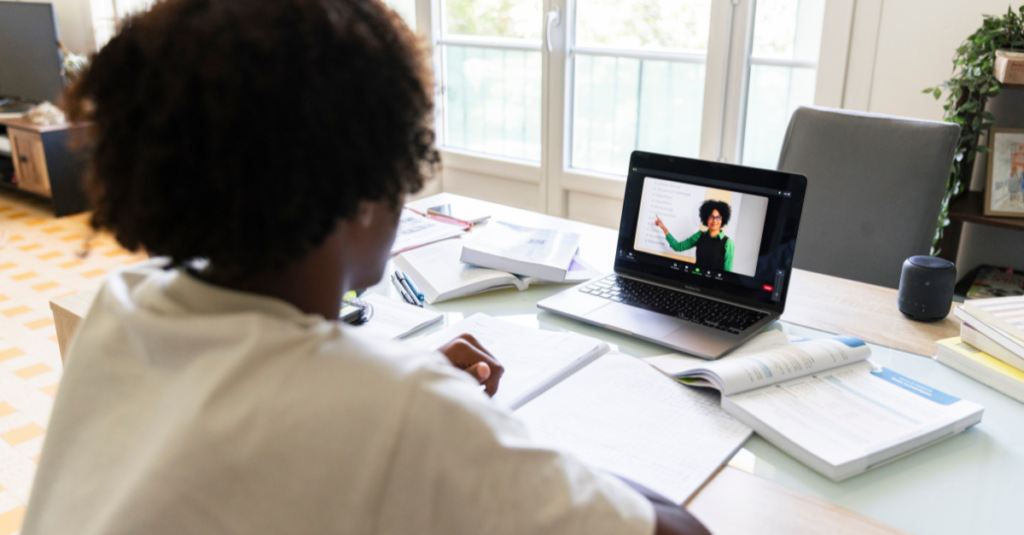Mastering Cambridge IGCSE Maths: Inside Tips from Expert Tutors
A whole new universe of numbers, patterns, and problem-solving awaits you in Cambridge IGCSE Maths. It’s more important to comprehend how formulae function in real life than to commit them to memory. And truthfully? Although it might be difficult, you can use those difficult calculations as stepping stones to success if you take the proper approach.
What, then, is so special about Cambridge IGCSE Maths? How can you turn it become your favorite topic? Let’s explore some essential pointers and techniques to assist you become an expert.
The Magic of Cambridge IGCSE Maths
What sets Cambridge IGCSE Maths apart from other math courses is its focus on application. It’s not just about solving problems; it’s about learning how to think critically and creatively. For example:
- You’ll learn how to calculate the best deals when shopping.
- Or figure out the probability of winning a game.
- Even understand the logic behind everyday things like budgeting or planning a trip.
That’s what makes it exciting! But also, a bit intimidating at first.
Breaking Down Complex Topics
Some topics in Cambridge IGCSE Maths can feel like a mountain to climb. But when you break them down, they’re much easier to handle. Let’s take a closer look at a few tricky ones:
Algebra
Sometimes, algebra feels like a riddle with letters in place of numbers. Consider it this way, though: every equation is a puzzle that has to be solved. Rearranging formulae is a good place to start. If you put in enough practice, it will become as enjoyable as solving puzzles!
Trigonometry
Although angles and triangles may seem uninteresting, trigonometry is used in everything from video games to construction and navigation! This subject may be made far less frightening by employing visual aids like interactive applications or triangular drawings.
Statistics and Probability
This one is entirely about actual circumstances. How often is it to roll a six on a die? or estimating the number of persons who could like a certain snack? Understanding patterns is the foundation of statistics and probability.
Time Management: The Secret to Success
One of the biggest challenges in Cambridge IGCSE Maths is managing your time during exams. You don’t want to get stuck on one question and run out of time for the rest. Here’s how you can avoid that:
- Practice Past Papers: Solve as many as you can. This helps you get familiar with the question styles and time limits.
- Divide Your Time: If you have 90 minutes for 10 questions, don’t spend more than 9 minutes on each. Leave some time to review at the end.
- Know When to Skip: If a question seems too hard, skip it and come back later.
Making Mistakes? Good!
Did you know making mistakes is actually a good thing? Each mistake teaches you something new. For example:
- If you mix up formulas, it’s a reminder to memorize them better.
- If you lose marks for untidy working, it’s a lesson to write clearly next time.
Mistakes help you grow. So, don’t fear them. Embrace them!
How to Stay Motivated
Sometimes, you’ll feel like giving up. That’s normal. But here’s how you can keep going:
- Set Small Goals: Don’t aim to ace the whole syllabus in one day. Start with one topic, like fractions or graphing.
- Celebrate Wins: Solved a tough question? Reward yourself! A short break or a snack can work wonders.
- Visualize Success: Imagine yourself acing that exam. It’s a great motivator.
Study Tips for Cambridge IGCSE Maths
Now, let’s get into the practical stuff. These study tips can make your preparation much smoother:
- Make a Formula Sheet
Write down all the key formulas on one sheet. Look at it every day. It’s like having a cheat sheet in your mind!
- Use Colors and Diagrams
Draw graphs, label triangles, and use highlighters for important points. Visuals help you remember better.
- Ask Questions
Don’t hesitate to ask your teacher or friends if you’re stuck. Sometimes, one explanation is all it takes to clear a concept.
- Practice Regularly
Math is like a muscle—the more you work it, the stronger it gets. Set aside 30 minutes every day for revision.
- Take Breaks
Studying non-stop doesn’t help. After every 30-40 minutes of focused study, take a 5-10 minute break.
Common Challenges and How to Beat Them
Even with the best preparation, there will be challenges. Here’s how to tackle them:
Challenge 1: Fear of Word Problems
Word problems can be confusing. The trick? Break them into smaller steps. Underline the important info and focus on what the question is asking.
Challenge 2: Forgetting Formulas
If you keep forgetting formulas, try turning them into songs or rhymes. Sounds silly? Maybe, but it works!
Challenge 3: Exam Anxiety
Feeling nervous before exams is normal. The key is to stay calm. Take deep breaths, stay hydrated, and remind yourself that you’ve prepared well.
Why Cambridge IGCSE Maths Matters
You might wonder, “Why should I even care about Cambridge IGCSE Maths?” Well, here’s why:
- Real-Life Skills: It teaches you logic, problem-solving, and analytical thinking.
- Career Opportunities: From engineering to finance, math opens doors to many fields.
- Confidence Boost: Solving tough problems gives you a sense of achievement.
Final Thoughts
Cambridge IGCSE Maths from Eclassopedia is more than just a subject. It’s a journey of discovery, challenges, and growth. Yes, it’s tough at times, but with the right mindset and strategies, you can conquer it.
Remember: every expert was once a beginner. So, keep practicing, stay curious, and don’t be afraid to make mistakes. You’ve got this!






